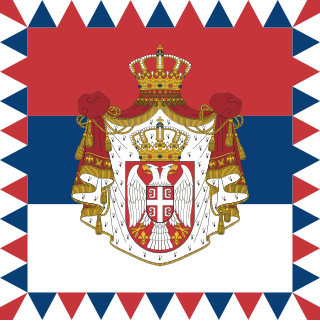Dragana Barišić is a politician in Serbia. She has served in the National Assembly of Serbia since 2014 as a member of the Serbian Progressive Party.
Milena Bićanin is a politician in Serbia. She has served in the National Assembly of Serbia since 2014 as a member of the Social Democratic Party of Serbia (SDPS) and has been the deputy leader of the party's parliamentary group throughout this time.
Žarko Bogatinović is a politician in Serbia. He has served in the National Assembly of Serbia since 2014 as a member of the Serbian Progressive Party.
Fatmir Hasani is a politician in Serbia from the country's Albanian community. He has served in the National Assembly of Serbia since 2016 as a member of the Party for Democratic Action. Hasani is currently the only Albanian member of the Serbian parliament.
Krsto Janjušević is a politician in Serbia. He has served in the National Assembly of Serbia since 2016 as a member of the Serbian Progressive Party.
Jovica Jevtić is a politician in Serbia. He has served in the National Assembly of Serbia since 2014 as a member of the Serbian Progressive Party.
Milovan Krivokapić is a politician in Serbia. He has served in the National Assembly of Serbia since 2016 as a member of the Serbian Progressive Party.
Ljibuška Lakatoš is a politician in Serbia. She served in the National Assembly of Serbia from 2014 to 2018 as a member of the Serbian Progressive Party. Since December 2018, she has served as the leader of Serbia's Slovak National Council.
Darko Laketić is a medical doctor and politician in Serbia. He has served in the National Assembly of Serbia since 2014 as a member of the Serbian Progressive Party.
Aleksandar Marković is a politician in Serbia. He has served in the National Assembly of Serbia since 2014 as a member of the Serbian Progressive Party.
Veroljub Matić is a politician in Serbia. He has served three terms as mayor of Koceljeva and has been a member of the National Assembly of Serbia since 2014, serving with the Serbian Progressive Party.
Žarko Mićin is a lawyer and politician in Serbia. He has served in the National Assembly of Serbia since 2014 as a member of the Serbian Progressive Party.
Zoran Milekić is a politician in Serbia. He was president of the municipality of Kučevo from 2004 to 2016 and has served in the National Assembly of Serbia since 2014 as a member of the Serbian Progressive Party.
Ljubica Mrdaković Todorović is a medical doctor and politician in Serbia. She has served in the National Assembly of Serbia since 2012 as a member of the Serbian Progressive Party.
Ivana Stojiljković is a Serbian politician. She served in the National Assembly of Serbia from 2014 to 2018 as a representative of the Serbian Progressive Party.
Hadži Milorad Stošić is a politician and retired military official in Serbia. He has served in the National Assembly of Serbia since 2012 as a member of the Party of United Pensioners of Serbia (PUPS).
Tanja Tomašević Damnjanović is a politician in Serbia. She has served in the National Assembly of Serbia since 2014 as a member of the Serbian Progressive Party.
Jelena Žarić Kovačević is a politician in Serbia. She has served in the National Assembly of Serbia since 2016 as a member of the Serbian Progressive Party.
Marko Zeljug is a politician in Serbia. He has served in the National Assembly of Serbia since 2016 as a member of the Serbian Progressive Party.
Gordana Predić is a politician, administrator, and journalist in Serbia. She briefly served in the National Assembly of Serbia in 2016 as a member of the Social Democratic Party of Serbia (SDPS).






